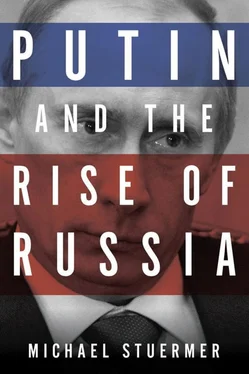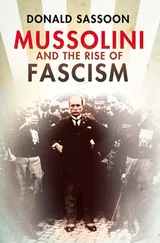Sometimes, when the outside world seems to be addressed it is really the Russian people who are the recipients. ‘Our pilots have been grounded for too long. They are happy to start a new life’ – this is how President Putin launched the ex-Soviet strategic bomber fleet once again into world-spanning patrols suspended after the end of the great confrontation and the collapse of the Soviet Union, due as much to lack of funds as to the absence of the enemy. The opening of another base on Syria’s Mediterranean coast, the long-term lease dating back to Soviet times, had preceded the flying orders. When it comes to selling military hardware the need for defence contractors to make money often comes into conflict with the more diplomatic strategies of the Kremlin and Russian long-term security. Selling advanced anti-air weaponry to Syria is bad enough, but selling the same materiel to Iran, in addition to fourth-generation fighter bombers, is positively dangerous – certainly in the eyes of those in the Moscow General Staff charged with thinking about the long term.
The planting of the Russian flag with the double-headed eagle on the bottom of the polar seabed in late summer 2007, as close to the North Pole as possible, was a grandiose gesture, claiming that Russia’s continental shelf – with whatever subterranean treasures it might contain – extends all the way to the pole.
All of this should be taken seriously, not as a return to the Cold War stand-off but as a signal, to Russians as much as to the rest of the world, that Russia claims great power rank, second only to the US, and is back in business. Behind all the boasting and showing off, the truth is, as Dmitri Trenin put it, ‘Russia’s business is Russia itself.’ Power and property are, ironically more than anywhere in the West, one and the same. This is also underlined by the fact, reassuring up to a point, that the people who run Russia are also the people who own much of Russia. Post-imperial Russia on its way to becoming a nation state drums up greatness and Russian nationalism, but it is among the least ideological countries of the world, with plenty of natural resources to export but no ideology to match. The true values are capital assets at home and, preferably, abroad, beyond the reach of the FSB and the sniffer dogs of the tax police. Russia Inc. is doing well while expanding markets, controlling the flow of oil and gas, and acquiring shares in whatever lies downstream.
While in Soviet days antagonism to the bitter end was the founding formula and co-existence imposed upon Soviet ideologues only in later days under the grim shadow of intercontinental ballistic missiles and nuclear warheads, today the relationship is seen as competitive rather than antagonistic. Russia’s leaders are not recreating the Soviet Union. ‘We made this mistake once,’ Sergei Ivanov said, when still defence minister, only half jokingly. Globalization, with China and India rising and their insatiable appetite for raw materials growing, has dealt Russian leaders a hand of cards that is sure to help them through the next thirty or more years and allow them to expand their one-dimensional economy into a science-based post-industrial economy. This is the grand strategy in which the West is assigned an important, in fact essential, more as a partner than as an antagonist. China, for a long time to come, will sell growing quantities of low-tech goods to Russia, as to the US. But capital goods, especially machine tools fitted with cutting-edge technology, and also the more sophisticated technical toys and luxury goods which the Moscow and St Petersburg elites cherish, can only come from Western countries.
Time for a grand strategy
Putin and his people want to rebuild Russia as a great power, with global reach – and with Gazprom’s recent excursions, after Central Asia, into Latin America and Central Africa, there is more to come – and they understand their strengths and weaknesses very well. Where Russian tanks never rolled, Gazprom is now doing business, acquiring market share and aiming for monopolies – just as faithful communists had been told, in the old days, about the wicked ways of capitalists cultivating worldwide monopolies.
Obviously, there is much reason for the West to watch and worry. But there is even more reason for the West to get its act together and cheer up, welcome Russia back among the living and to define the areas where strengths are complementary and interests converge. There is no guarantee against serious rivalry over territory, loyalties and markets, from the Balkans and Eastern Europe to the Greater Middle East and beyond. This should be handled in troikas – Kosovo – or quartets – the Middle East, hopefully with more success than in the recent past. Going back to the UN is also an important option to minimize friction and, if crisis occurs, to keep talking and negotiating and avoid confrontation.
The one great premise that Western politicians have to understand is that Russia’s foreign policy thinking comes mostly from the nineteenth century. America’s was formed in the twentieth century, ‘the American century’, while Europe’s is based on a vision of never never land in the twenty-first century. That makes talking over each other, especially at summit meetings, from Heiligendamm to Kennebunkport, a time-consuming exercise, fraught with misunderstanding and resentment.
A country without friends
Russia the lone wolf – this is not a reassuring metaphor for the West, nor is it a viable strategy for Russia. Developing something like a joint Russia strategy throughout those countries who see themselves as the New West as opposed to the New Russia will take time, and it will – and should – stop short of any kind of neo-containment. This is something that cannot work and would be divisive for Europe and the US. Cultivating relations with Russia will be a long-term, difficult and sometimes painful effort for the West, but it is as unavoidable as it is promising, and it is in the long-term interest also of Russia and the Russians.
The strange marriage of pride and paranoia, so characteristic of Russian diplomacy from the tsars right down to the present, will persist. The West will have to get used to – and will have to manage – a more aggressive tone and, possibly, the rough substance of Russian political discourse both at home and abroad. Authoritarian democracy needs the image of the ruthless, wily enemy. Meanwhile, the evil forces outside also legitimize toughness and roughness in dealing with dissent and opposition at home. The 2007 election campaign, as well as the presidential campaign to follow, were not an aberration. They were orchestrated in order to make people forget their material complaints, a concerted effort to add fuel to the flames of the new Russian nationalism. What all of this means for Russia’s domestic situation as well as for Russia’s relations with the outside world, especially with the West, is not difficult to predict. The forecast is for more strong-arm tactics at home, more power struggles at the top, and a rough climate in international affairs.
What began at the Munich Security Conference 2007, when Putin said goodbye to Mr Nice Guy and took off the kidgloves, has turned out to be a two-pronged manoeuvre: not only an opening shot in the new contest with the West but also the first act in a drama orchestrated by the Kremlin for the benefit of the domestic audience. Russian foreign policy and the Kremlin’s domestic power base are, for better and for worse, intimately connected, in fact inseparable. The West should not expect a mellowing of the Kremlin’s confrontational tone without prior softening of domestic authoritarianism. Or, the other way round, the outside world should not expect the domestic toughness to soften without a climate of détente in international affairs. The domestic scene and the international performance are intimately connected, in fact inseparable. Therefore it is an illusion among many practitioners in the West that they can do business without paying attention to the wider political context. This did in fact work at the time of the Soviet Union, when Russia was both an existential threat and a reliable supplier of gas and oil, but the juxtaposition of democratic values and economic interests cannot work in an environment where mergers and acquisitions are being negotiated on a daily basis and where share swaps between major companies are a feature of everyday life. The democratic rules of the game include, after human rights, transparency, openness and the rule of law.
Читать дальше











